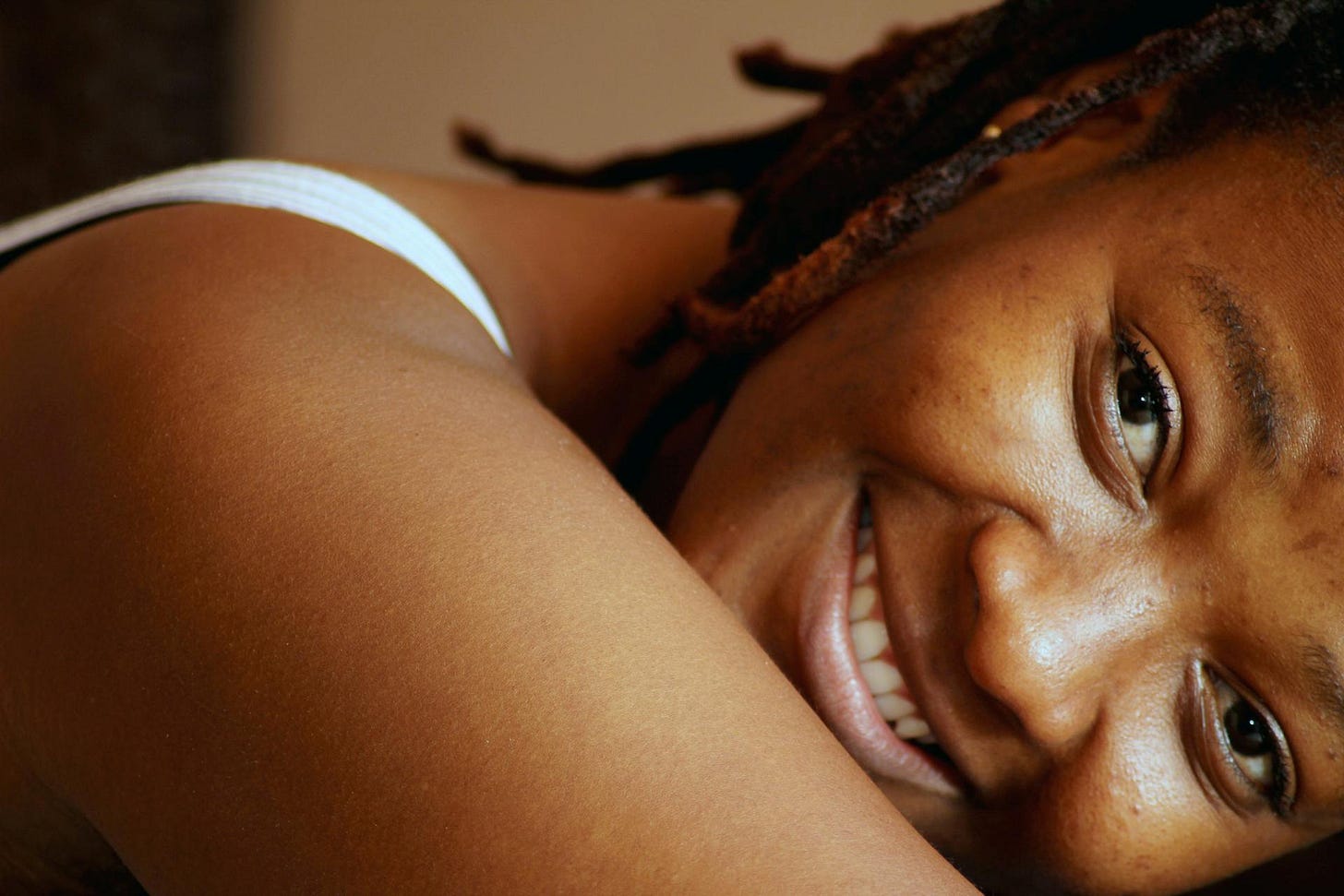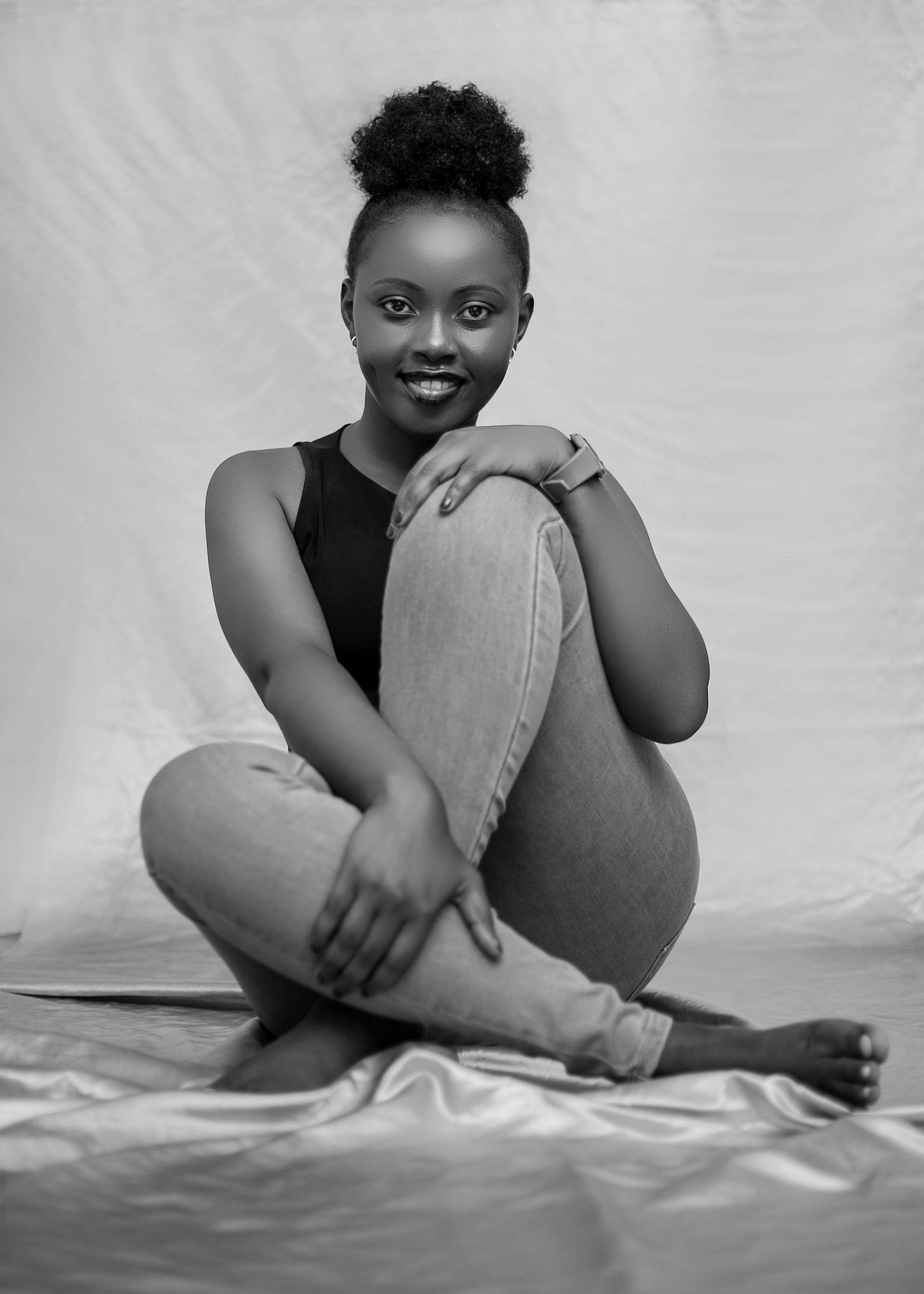The African Woman’s Fitness Dilemma
How to honour heritage, reject quick fixes, and build a body that’s both healthy and unapologetically yours.
The Contradiction Every African Woman Knows
“Be thick, but not fat. Be curvy, but not sloppy. Be strong, but not masculine.”
It’s exhausting how often our bodies are placed under a microscope, measured against rules we never agreed to. Say no to a second plate of jollof, and suddenly you’re “losing your African body”. Hit the gym, and the whispers start: “Careful oo, you’ll look like a man”. Yet somehow, we’re also told to “keep it tight” and “stay attractive”.
Which is it?
This isn’t just a conversation about beauty standards. It’s about identity, acceptance, and the quiet fear of stepping outside the box that culture, family, and even strangers keep trying to shove us into. But the truth is, the body you choose to build is no less African, no less feminine, and no less worthy. It’s yours. And that should be enough.
What “African Femininity” is Supposed to Look Like
Across the continent, there’s a script we’re all handed before we even know how to spell the word “femininity”. In Côte d’Ivoire, she’s called Awoulaba, the woman with wide hips, round buttocks, full breasts, the “true African figure”. In Ghana and Nigeria, the songs, the dances, the slang all celebrate women who are “thick in the right places”. In South Africa, the word “curvy” isn’t just a compliment. It’s almost a requirement.
And if you don’t quite fit that mould, the world makes sure you know. Online, women talk about aunties warning, “Don’t get too slim or no man will marry you.” Others admit that when they lose weight, the first suspicion in the neighbourhood is sickness, not fitness. On Reddit, one sister confessed, “I can’t help but feel inadequate when I’m surrounded by curvier women. Sometimes I avoid the gym because I’m scared of losing what little I have.”
It’s not just about wanting curves. it’s about the fear of being less attractive if you don’t have them. And that pressure is heavy. It shows up in how we dress, in the compliments we crave, in the shame we feel when our bodies don’t measure up. Even the fitness journey itself becomes complicated: how do you eat cleaner without being accused of “starving yourself”? How do you strength train without people warning you’ll “become a man”?
The irony is, these standards don’t even belong to us. They shift with trends. One moment it’s “slim-thick”. The next, it’s “big booty at all costs”. Meanwhile, we’re left chasing moving goalposts while carrying the weight of centuries of cultural expectation.
This is why so many women feel trapped between wanting to own their fitness journey and not wanting to betray their culture. The agony lies in trying to balance health with heritage; personal goals with collective approval.
The Rise of Quick Fixes
When the pressure gets unbearable, the market always steps in with a shortcut. And in Africa, that market is booming.
Scroll through Instagram or TikTok, and you’ll find endless ads: “Hips & Bums Enhancement Cream”, “Weight Gain Syrup”, “Detox Tea for Slim Waist”. Some even promise results in two weeks. The captions are always the same: “No exercise needed. No diet changes. Just apply, drink, or swallow and watch the magic.”
It’s tempting, isn’t it? Why spend months grinding in the gym when a syrup claims it’ll give you hips like Sheryl’s or a waist like Anita’s? Why eat clean when a “flat tummy tea” promises to undo last night’s banku?
But here’s the catch:
Most of these products are unregulated. You never really know what’s inside.
Many cause harmful side effects. From bloating and digestive problems to hormonal imbalances that mess with your body long-term.
They feed the cycle of disappointment. Even if they work for a short while, the results fade, leaving you back at square one, often worse than before.
And then there’s the surgical route: liposuction, BBLs, fat transfers. These have exploded across Africa’s cities. Clinics in Lagos, Johannesburg, and Accra are fully booked months in advance. Women save for years, take loans, or risk unsafe underground procedures, all chasing that coveted “hourglass”.
But surgeries come with their own devastating risks. Complications, infections, even death. We’ve seen too many headlines, too many young women gone too soon, all because the pressure to “look right” outweighed the chance to live long.
And the sad irony is, many of these so-called fixes actually strip women of the very thing they were chasing: confidence, health, and peace with their bodies.
So here’s the truth no influencer or brand selling you a bottle will admit: there is no shortcut worth your life, your fertility, or your health.
Fitness that Works for You
Here’s the reframe we desperately need:
Fitness is not about shrinking yourself to please others, nor inflating yourself to meet a trend. It’s about building a body that lets you live fully, confidently, and healthily, on your own terms.
For us women, that means working with your body type and heritage, not against it. Many of us are naturally curvier in the hips and thighs, or we carry weight around the midsection. That’s not a flaw. It’s just biology. And the gym doesn’t have to erase it. In fact, the right training can enhance it.
Some sustainable paths to consider:
Strength Training for Curves (Not Against Them):
Squats, hip thrusts, and deadlifts are your allies. These don’t “kill your bum”. They sculpt and strengthen it. Lifting weights won’t turn you into a bodybuilder overnight. What it does is help you build toned, firm curves that last far longer than any cream or pill.Cardio with Intention:
You don’t need to run marathons. Dance classes, skipping rope, or even brisk walks can burn fat without stripping away your natural assets. Think of cardio as shaping, not erasing.Food as Fuel, Not Enemy:
Culturally, food is love where we come from. Big plates, second helpings, mothers insisting you eat more. Instead of rejecting that, learn balance. Complex carbs like yam, beans, and plantain give energy. Pair them with protein (fish, chicken, eggs) to support muscle growth. Small tweaks go further than extreme diets.Celebrate Progress Beyond the Scale:
Forget chasing one number. Look at your energy levels, your strength, your confidence in that dress. Progress is personal.
Most importantly: don’t lose yourself chasing approval. If you’re constantly worried about disappointing your mum, your man, or the internet, you’ll never enjoy the journey. Fitness should be freedom, not another form of bondage.
What matters most is sustainability. You can drink detox teas for two weeks, or you can build habits that carry you for two decades. Only one of those paths gives you both curves and confidence.
The Reclamation of the African Female Body
The African woman’s body has always been powerful, and it has always been policed. From colonial beauty standards that glorified slimness, to cultural pressures that overemphasise hips and busts, we’ve been tugged back and forth between ideals that were never truly ours.
But there’s a shift happening now: women are reclaiming that power. We are realising that our bodies are not battlegrounds for other people’s approval, but vessels for our own lives, health, and joy.
The African female body doesn’t need fixing. It needs freedom. And that freedom comes when we stop outsourcing our worth to creams, clinics, and comments, and start building habits that serve us, day after day. Because at the end of the day, it’s not about fitting into their box. It’s about living in your body like it was always meant to be lived in: free, strong, and unapologetically yours.
Have Your Say
We know every woman’s journey with her body is layered: full of quiet battles, cultural expectations, and personal victories that don’t always make the highlight reel. Maybe you’ve felt the pressure to fit into a certain “ideal”, or you’ve wrestled with balancing your health goals against what society says a “beautiful” woman should look like. This is your space to speak your truth. Share your experiences, your frustrations, and your wins.
Your voice doesn’t just matter, it helps rewrite the narrative for all of us.
Get notified as soon as we publish content on women’s fitness. We’re creating a space for women who want to optimise their fitness, energy, and well-being through sustainable routines built to support strength, balance, and longevity.
Manage your notification settings.




